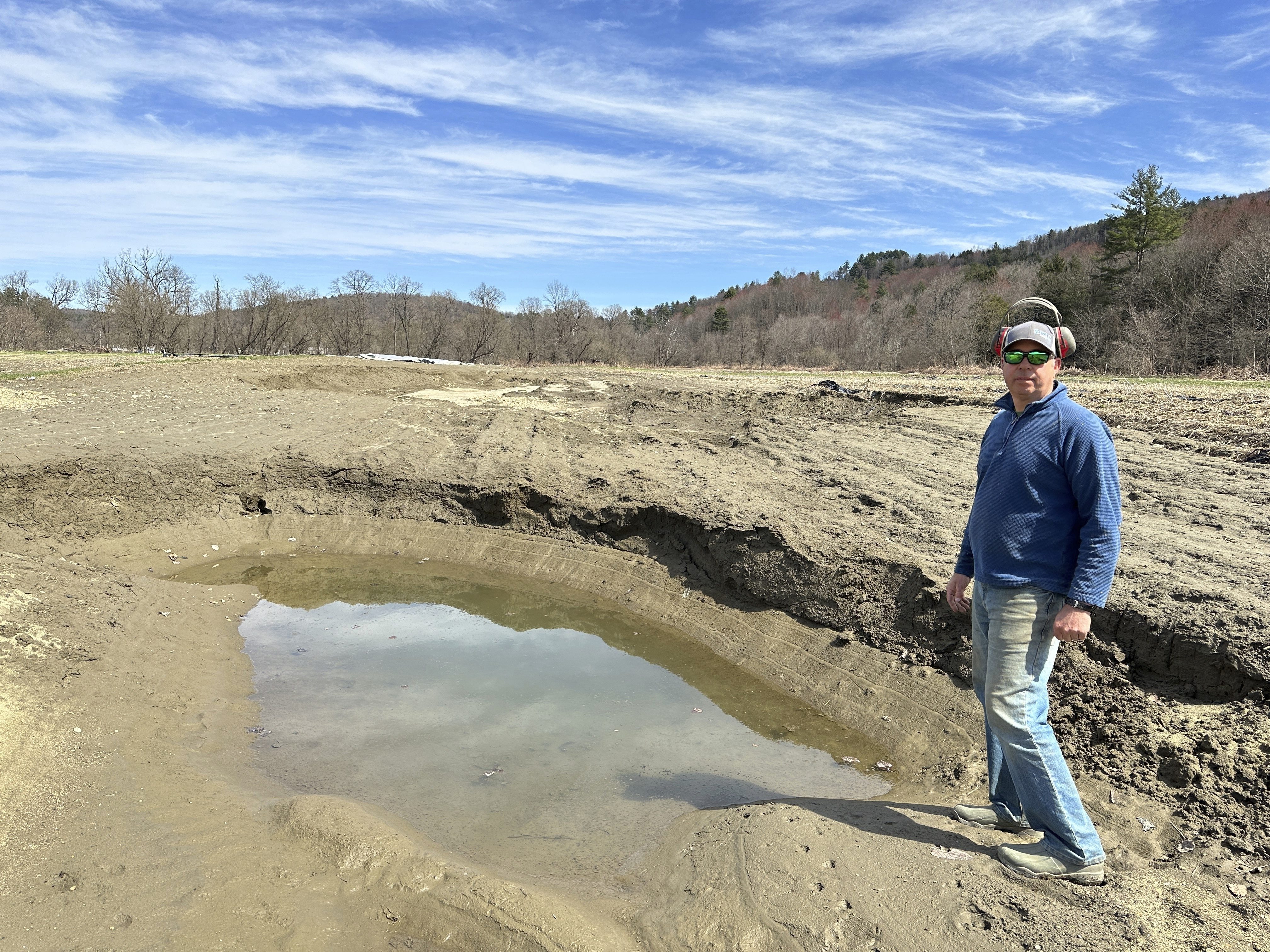Berlin Elementary School drew praise from Vermont's top environmental official Tuesday for the school's work to reduce the flow of food waste into landfills.
Julie Moore, the secretary of the Vermont Agency of Natural Resources, visited the school during lunchtime to witness its composting operation.
"I think the full circle here is really impressive and exciting," Moore said of Berlin Elementary's program that turns food scraps into rich soil for its school garden.
It's estimated Berlin kids have helped convert 60 tons of food scraps, plus paper towels, into soil products over the last eight years.
Most of the scraps collected in buckets in the cafeteria heads off-site to a commercial composter. However, a grant from the Central Vermont Solid Waste Management District has enabled the addition of a new compost setup on school grounds.
That system aims to create healthy soil to boost the school gardens that produce fruits and veggies for special functions.
Additionally, individual classrooms have vermicompost boxes, in which worms live and contribute to breaking down food scraps.
Vermont
The latest news from around the state
"When they eat the food, when they're done, they make it into rich soil," first grader Erin Trottier said of the worms.
Trottier and her classmate, Sophia Markham, explained that they learned how rich soil contributes to the growth of plants and trees.
"Their leaves make oxygen, that let us breathe air," Markham said of trees. "And if we don't breathe, we won't be alive. So worms are really helpful for us."
School administrators said enthusiasm for the concept from many teachers, staff members, and parents helped ensure the project was a success.
"They're the future," Berlin Elementary School speech language pathologist Meg Dawkins said of the students. "We need to help them learn more about their food—that they don't necessarily have to go across the street [to the grocery store], but they can grow it themselves."
Secretary Moore of the Natural Resources Agency praised Berlin's work to slash what goes to landfills, and said she hopes more communities can upgrade their commitment to composting.
"Berlin is sort of at the next level from where many schools are," Moore told necn. "But certainly, [school meals are] an area where there's a lot of food waste generated. It's generated every day. There are lots of helping hands that are willing to get in there and turn the compost, and when you can identify an end use like a school garden, the whole package is right here in one location."
Moore gave the kids in Berlin an A+ for putting the planet first.



